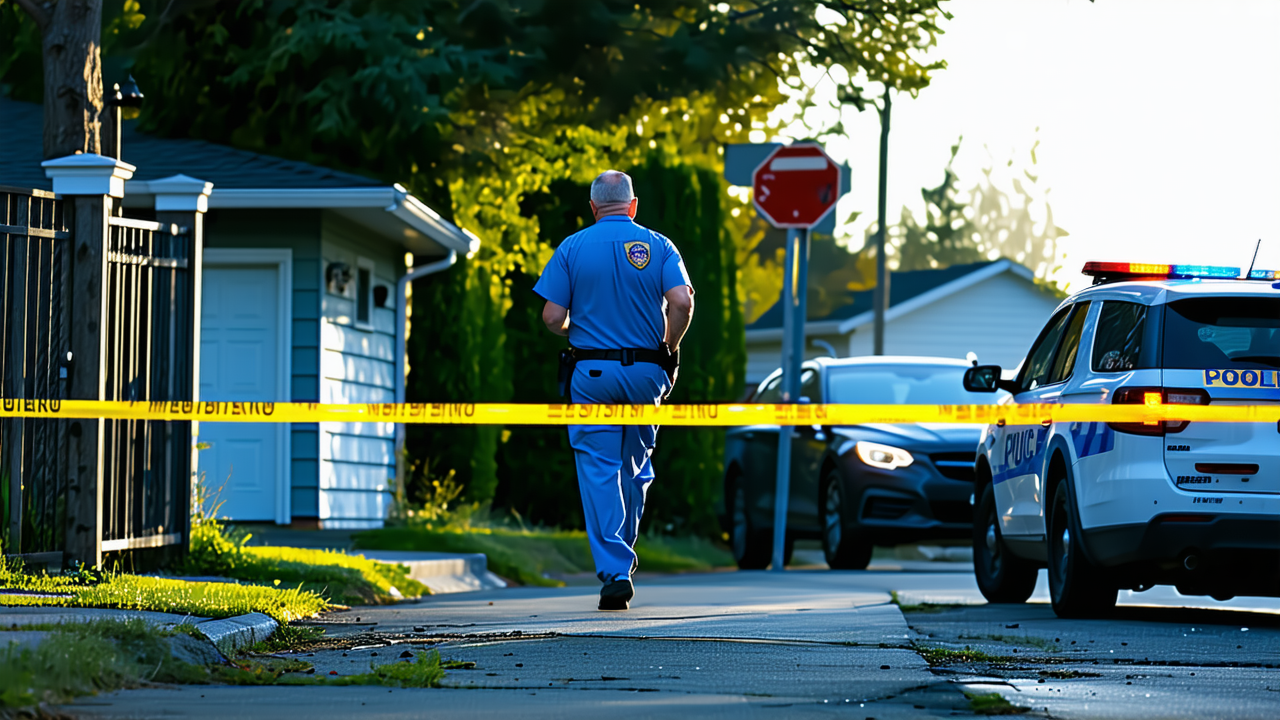Kenyan suspect evades capture after 2009 New Zealand murder and assault
Samuel Njuguna, Fugitive in a 2009 Double Crime, Still at Large After 15 Years
More than 15 years after a brutal attack in Christchurch, New Zealand, Samuel Njuguna remains a fugitive, evading justice for a crime that left one man dead and another woman critically injured. The incident, which took place on Saturday, September 12, 2009, in an Avonhead cul-de-sac, shocked the local community and has since become one of New Zealand's most enduring cold cases.
According to police records, Njuguna, a Kenyan national, violently attacked Lydiah Munene, a 34-year-old nurse, at the time of the incident. He left her for dead and also murdered Stephen Mwangi Maina, a friend who was staying at the property. Munene suffered severe head injuries in the attack, leading to the removal of part of her skull to relieve brain pressure. A titanium plate was subsequently inserted to support her cranial structure. The trauma was so severe that she lost her ability to speak English temporarily and had to relearn the language.
Following the incident, Munene was placed in an induced coma, and her condition remained critical for a prolonged period. Despite the physical and psychological toll of the attack, she has since recovered and now lives in Christchurch. In a recent statement, she said she has moved on from the trauma and forgiven Njuguna, though she declined to speak publicly about the incident. She noted that she does not remember the attack but is aware of what happened to her and believes that the experience has transformed her into a more positive person.
The police investigation, known as Operation Burrows, was launched after Munene’s friends failed to hear from her and contacted authorities. Detectives initially suspected Njuguna may have been involved, though they did not confirm the use of a weapon or its recovery at the time of the investigation.
Njuguna reportedly fled to Kenya shortly after the attack, arriving on September 16, 2009, and has evaded capture since. Interpol has issued a live Red Notice for Samuel Ngumo Njuguna, requesting international cooperation to locate and provisionally arrest him. Despite repeated inquiries by New Zealand authorities, including contact with Njuguna’s brother in Kenya, no leads have emerged.
Detective Inspector Greg Murton, who now oversees Operation Burrows, emphasized that while there is no indication Njuguna has left Kenya or is no longer alive, he is believed to be hiding in the country. Murton noted that New Zealand does not have a dedicated extradition treaty with Kenya, though authorities there have been cooperative in the past.
The case remains active and is part of a broader pattern of unresolved cold cases in New Zealand, including the Kirstie Bentley and John Reynolds cases. Police continue to monitor for new information but are reliant on Kenyan law enforcement to conduct inquiries. Murton believes that Njuguna will eventually be found, given the large population in Kenya and the difficulty of remaining hidden. However, he doubts that any legal appeal would convince Njuguna to surrender.
Stephen Mwangi Maina, the victim of the attack, was a well-known personality in Nairobi’s party scene and had a friendship with Munene’s family. He had moved to New Zealand to support his family and was living in the country at the time of the incident.
The homicide file remains open, and the case could proceed to trial if Njuguna is located. As the years have passed, the case has become a significant cold case in New Zealand’s criminal history, with ongoing efforts to resolve it.
While the road to justice has been long, the determination of New Zealand’s police force continues to shine a light on this unresolved tragedy. The public is urged to remain vigilant and report any information that could lead to Njuguna’s capture.
